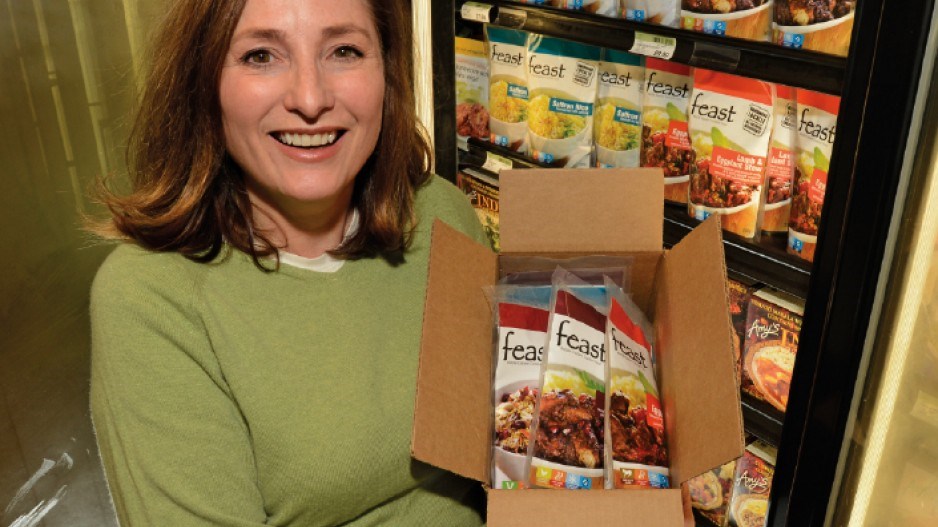At the Whole Foods outlet on Robson, Celena Benndorf is getting a lot of traffic.
She's set up a display for Feast, her line of prepared meals she calls "Middle Eastern comfort food," featuring free-range Maple Hills chicken and pasture-raised lamb.
"Everybody wants to eat local," she said, "and I am as local as I can afford to be."
She wishes that meant Vancouver. In fact it means Surrey. Benndorf said a suitable production facility in Vancouver would be beyond her means.
"If the City of Vancouver is truly interested in local food [its] food policy ought to make it possible for small-food processors to operate."
Small food processors – entrepreneurs who create and package their own retail food products – face daunting hurdles in Vancouver. To compete with international and supermarket brands is to walk through the valley of some not-so-jolly giants.
"I see people with stars in their eyes," said consultant and former pickle retailer Andrea Gray-Grant. "They say, 'I'm going to market my mom's rice pudding!' It's like going to Hollywood wanting to be a star. They don't realize the challenges – it's expensive and the margins are very low."
Gray-Grant pointed out that the needs of small food producers are greater than those of food-truck operators, who need only the kitchen space to whip up their meals.
"There are more options in town for them," Gray-Grant said, citing an east Vancouver kitchen run by local food truck operator Sarb Mund. "We need facilities where we can package and label as well."
Many small processors start out at farmer's markets, Gray-Grant said. But making the leap to retail is an entirely different matter.
"You can't just slap any label on it anymore – it has to comply with regulations for nutritional information. And you can't just pull up behind the store in your car either – places like Whole Foods demand professional distribution. That distribution can take up to 35% of your costs. Of course, the store wants a competitive price to make a profit. So chances are your profit margin will end up at less than 20%; 10% is a realistic expectation."
Some small processors have been looking ahead hopefully to a new permanent farmer's market facility now in the works. When completed, it's expected to operate as a "food hub" for local producers. Tentative plans have included a commercial kitchen facility, possibly with manufacturing and labelling capability, as well as an aggregated distribution system and services like temporary cold storage. But according to Tara McDonald, executive director of the Vancouver Farmers Market, the plans are still fluid and "at least three to five years away. We hope to have a location nailed down this year."
Gray-Grant, who once worked for Vancouver mayor Gregor Robertson at Happy Planet Juices, said the city is not doing enough for small-scale processors.
"They talk about the benefits of local food," Gray-Grant said, "but seem to have no understanding of the needs of value-added product makers."
But Candice Appleby of the Small Scale Food Processors Association has a more positive view of city hall. "They've been ahead of the curve," Appleby said, citing Vancouver's food policy charter and support for urban greenhouse operations.
While all involved agree that local food production is a tough business, Appleby said it's growing: "the demand is there, and the desire to create good local products."
Entrepreneurs with aspirations to set up a local food product business face regulations at every level of government, including:




